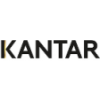Snabbfakta
-
- London
Ansök senast: 2024-09-27
Chapman-Schmidt AI in Science Postdoctoral Fellows, a program of Schmidt Sciences (Research Associate)
Applications are invited for prestigious Chapman-Schmidt AI in Science Fellowships, a program of Schmidt Sciences, commencing 1 September 2025. There are 2 positions available, with a duration of 2 years.
Fellows will join the Eric and Wendy Schmidt Network of researchers and will join a unique co-located cohort of top scholars based in with tailored training and one-on-one career development. The fellowships are flexible and independent, allowing recipients to freely explore while drawing on expert faculty mentors of their choice. These fellowships have the aim of identifying excellent researchers and accelerating them in using AI to advance and disrupt Science or Engineering.
Here ‘AI’ is interpreted very broadly, .: topics in Bayesian Inference and Robotics; ‘Science’ covers any typical topic in Natural Science and Engineering (Epidemiology, Biology and basic science in biomedicine are included but very clinical medical themes are not covered, including conventional medical imaging). Examples include Bayesian optimization for molecular or materials design; machine learning for single cell data; physics-based ML for turbine design and astrostatistics. These posts are not suitable for generic AI research with general application: candidates must be aiming to substantially advance a particular area of science. Applicants could view themselves as AI researchers tackling particular pieces of science or science researchers using AI to transform their area. Extensive AI knowledge is not required, and AI training is offered.
We have a programme of additional support for women in AI in Science including additional funds for their career development and a community of I-X AI in Science women. The I-X Women in Artificial Intelligence (), founded by two of our current Fellows, aims to enhance representation of women in AI and foster an environment where they are valued, supported and inspired to achieve their full potential. We expect to appoint at least one candidate through this route.
Applicants interested in 4-year roles should apply for the Imperial College Research Fellowships, supported by Schmidt Sciences. Application details can be found .
Other Schmidt Sciences Fellowship roles, at both Research Associate and Research Fellow level can be found
If candidates want to also be considered at the Research Fellow level, then they need to send in an additional application for that role (the documents submitted can be repeated).
Fellowships are also available for more experienced researchers. Links to other opportunities can be found .
Fellows will produce independent and original research, using AI to advance science, within the Maths department and I-X. Further details to be found in the job description.
The Chapman-Schmidt AI in Science Fellows will:
Joint Fellowships
.
*Candidates who have not yet been officially awarded their PhD will be appointed as a Research Assistant on spine point 16, £44,888 per annum
This is a full time, fixed term position for 2 years. You will be based at the White City Campus.
An additional single file with:













